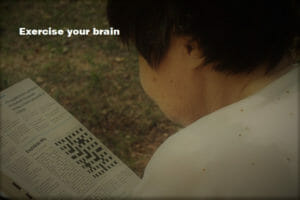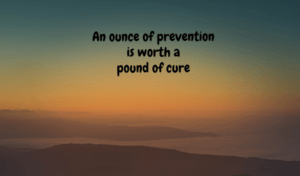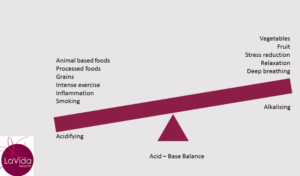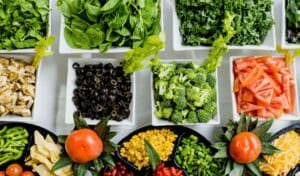When we think of fatigue, one of the first things we think about is iron. What does your iron status look like? Has it been tested (thoroughly)?
Iron is an important mineral required for a diverse range of body processes including; energy production, protein and carbohydrate metabolism, DNA synthesis, and thyroid and immune function (to name but a few). However, it is probably best known for its role in energy production with fatigue being a primary symptom of iron depletion or deficiency. This is because iron is required by your red blood cells to transport oxygen from your lungs to your organs and muscles.
Inadequate iron levels for a prolonged period can result in iron deficiency anaemia resulting in your heart having to work harder to pump sufficient oxygen around your body.
How common is iron deficiency in Australia?
The Australian Bureau of Statistics (following a survey in 2011-12) estimated that 4.5% of the Australian population over age 18 were at risk of iron-deficiency anaemia with women being at greater risk than men due to their lower intake and greater need).
Those most at risk of iron deficiency include the elderly, menstruating women,
pregnant and lactating women, premature and small babies and young children.If you’re a vegetarian or vegan you also have a higher risk of iron deficiency.
What are the common symptoms or signs of iron deficiency?
Common signs and symptoms of iron deficiency include:
- Fatigue
- Dizziness
- Light headiness
- Pale skin
- Poor sleep
- Restless legs
- Regular and/or recurring colds and other illnesses
- Low mood
Remember, these symptoms may be a result of other health issues which is why it’s important to get your symptoms assessed and avoid a self-diagnosis of iron deficiency.
What are the food sources of iron?
There are two sources of iron:
Haem iron – found in animal products, especially meat, fish and poultry. Organ meats are particularly high in iron (which is great if you like them).
Non-haem iron – found in plant food such as nuts (particularly cashew and almonds), pumpkin seeds, some fruits, vegetables, grains, legumes and tofu.
The majority of iron in a typical diet comes from non-haem sources. Non-haem iron is harder for the body to absorb than haem iron. Therefore, it is a little harder to obtain adequate dietary iron if you are a vegan or vegetarian. It certainly can be done, you just need to make sure you’re eating lots of iron-rich plant food.
How much iron do you need every day?
How much iron you need to consume depends on your age, gender and current iron status (which influences absorption). For simplicity, it’s important to eat a wide variety of lean meat, fish, wholegrains, legumes, nuts, seeds and vegetables every day to ensure you are getting enough iron.
The recommended daily intake of iron for men is 8mg per day and for menstruating women it’s 18mg per day.
If you are a menstruating female, below is an example of a one day diet to meet your iron needs.
Breakfast – 2 eggs with 1/2 a cup of steamed spinach (approx. 5mg)
Morning tea – A small handful of almonds and cashews (and a few strawberries for vitamin C) (approx. 1mg)
Lunch – Salad built around 1 cup of cooked quinoa (approx. 3mg)
Afternoon tea – Vegetable sticks with 50g of hummus (approx. 2mg)
Dinner – Healthy spaghetti bolognese with 1/2 beef and ½ lentils on zucchini noodles (or wholemeal/gluten-free pasta) (approx. 6mg).
Supper – 20g of dark chocolate (approx. 1mg)
Are you consuming enough iron to meet your needs?
Where to start if you think you are low in iron?
The first thing to do is see your doctor or naturopath for an assessment of your symptoms. If it is suspected that low iron might be the cause of your symptoms, blood tests should be requested. In order to fully understand your iron status as well as how your body is utilising iron, we want to go a bit further than the standard FBE (full blood examination which looks at haemoglobin and red blood cells). Ideally, we also want to check serum iron, serum ferritin, transferrin and transferrin saturation (collectively known as iron studies).
When I study the results of these tests, I am considering them in the context of you. For example, if you are a female meat-eater with light periods, why would your iron be low? Does it make sense? Is there something else going on (I’m thinking gut health)? Tests should always be assessed in the context of the person.
The only time you should be supplementing with iron is when you have confirmed low iron levels on a blood test.
Once you have the results, speak to your health professional about whether you need to supplement with iron. And if you do, what form of iron you need to take, at what dose, how often and for how long. Your iron status should be re-assessed after 2-3 months to see if your treatment has worked. Too often I see (mostly) women, who have been told their iron is low, and have spent a lifetime of on/off supplementation without any thought as to why their iron is low in the first place.
What else can you do?
If you have been diagnosed with iron deficiency or have a tendency to low iron there are some ways you can boost your iron levels in conjunction with iron supplementation including:
Pairing iron rich plant foods with foods high in Vitamin C
Vitamin C aids the absorption of non-haem iron from plant food. So, if you were to eat green leafy vegetables, squeezing fresh lemon juice over the top (which is high in vitamin C) will enhance the absorption of iron from those vegies. Also, add foods like red capsicum or tomato to your salad.
Make sure you are getting enough Vitamin A in your diet
You need good levels of Vitamin A for iron absorption. Good sources of vitamin A include; orange vegetables and fruit, green leafy vegetables, nuts and seeds.
Avoid drinking tea with your meals
The polyphenols found in tea inhibit iron absorption.
Cook with cast iron cookwear
The iron from the cookwear will leach into your food giving you a little boost in your iron intake.
Make sure you get advice from your naturopath about how to take your supplements
Some minerals will inhibit iron absorption whilst some vitamins will enhance it. Iron will also impact the absorption of other minerals such as calcium and zinc. Therefore some supplements should be taken together and others separated. So it’s always best to be guided by your naturopath when taking nutritional supplements.
Can you have too much iron?
Yes, you can. In excess, iron is damaging to the body, so more is not necessarily better. In fact, fatigue can be a symptom of too much iron or low iron (that’s why we test).
Also, some people have a condition called haemochromatosis whereby they absorb iron more readily than others. This can result in an accumulation of excess iron which may result in tissue or organ damage….one more reason to have your iron studies done occasionally and interpreted in the context of your iron intake and blood losses.





